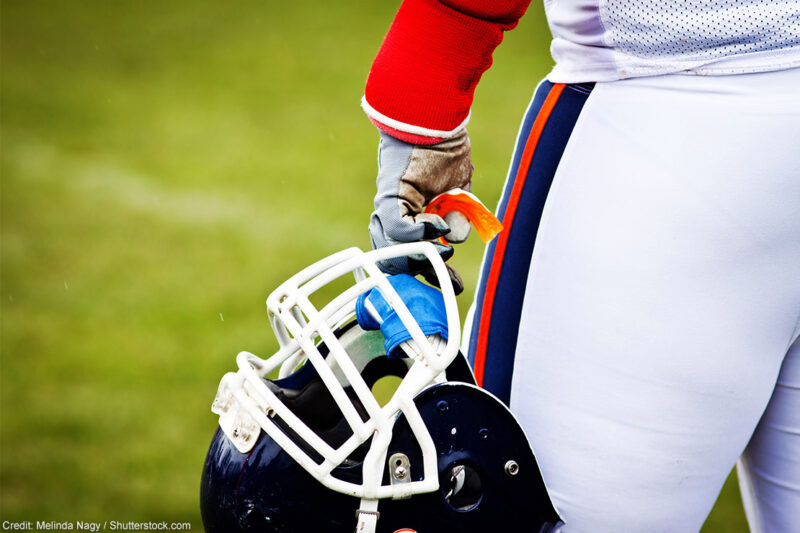

While sports stars have often used their platforms to speak out against injustice, college athletes are often prevented from doing so.

Sports have long been an arena where civil rights and civil liberties questions have taken center stage: Track and field star Tommie Smith raised his fist for racial justice on the 1968 Olympic podium. Tennis great Billie Jean King fought for equal pay for women. Olympic runner Caster Semana challenged intersex bigotry to be able to compete. And of course, NBA players organized a strike this week in protest of the killing by police of Jacob Blake in Kenosha, Wisconsin.
But one group of athletes has often kept quiet during social movements: college athletes. This is largely because the institutions they play for silence them. At a time when racial justice conversations have ignited across the country, At Liberty took a look at how universities suppress their athletes' voices and the barriers to holding those universities accountable.
Joining us to talk about college athletes and free speech is Frank LoMonte, First Amendment lawyer and director of the Brechner Center for Freedom of Information at the University of Florida, and Toren Young, a former football player at the University of Iowa.
College Athletes and the Systems that Silence Them College Athletes and the Systems that Silence ThemSports have long been an arena where civil rights and civil liberties questions have taken center stage: Track and field star Tommie Smith raised his fist for racial justice on the 1968 Olympic podium. Tennis great Billie Jean King fought for equa.
Sports have long been an arena where civil rights and civil liberties questions have taken center stage: Track and field star Tommie Smith raised his fist for racial justice on the 1968 Olympic podium. Tennis great Billie Jean King fought for equa.